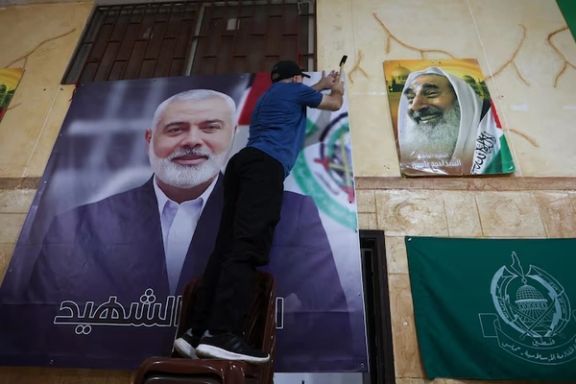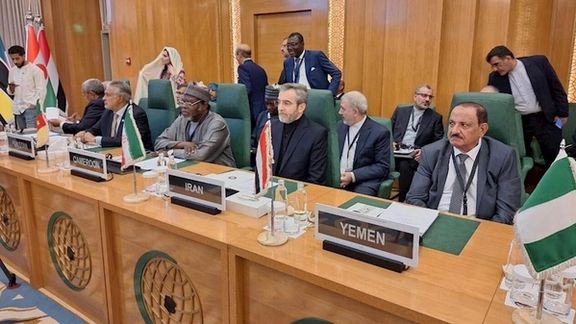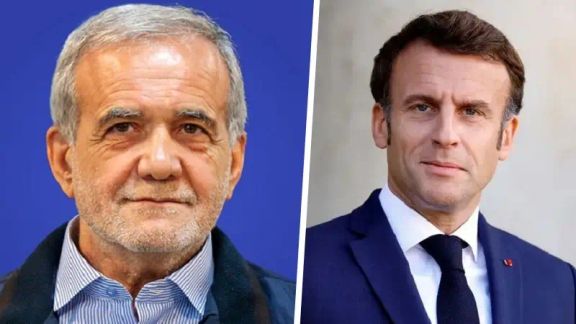Iran's delayed response to Haniyeh's killing raises questions

Iran’s military retaliation against Israel for the assassination of Hamas leader Ismail Haniyeh in Tehran is taking longer than expected, US intelligence sources say.

Iran’s military retaliation against Israel for the assassination of Hamas leader Ismail Haniyeh in Tehran is taking longer than expected, US intelligence sources say.
While initial assessments had predicted an early attack this week, the latest information says any retaliation may now be postponed, reported Al Arabiya.
It is believed that Iran waited until after Wednesday’s meeting of the Organization of Islamic Cooperation (OIC) in Jeddah before taking any action.
Iran’s Acting Foreign Minister Ali Bagheri-Kani traveled Jeddah, Saudi Arabia, leading a delegation to attend an extraordinary meeting of the Executive Committee of Foreign Ministers of the OIC. The meeting discussed the implications of the assassination of Hamas leader Ismail Haniyeh in Tehran last week.

Kani called on Muslim countries to support Iran's right to defend itself against "acts of aggression". Saudi Arabia supported Iran's position, saying the assassination was a "blatant violation" of Iran's sovereignty.
Iran has blamed Israel and the US for the killing of Haniyeh and has vowed to "avenge" his blood, however, the delay in retaliation has raised questions. White House officials said Tuesday that they believe President Joe Biden’s efforts to prevent a war in the Middle East "may be paying off" and "Iran may be reconsidering a plan for major retaliation" following the killing of the Hamas chief in Tehran, according to the Washington Post.
"The Iranian response has been complicated by seeming confusion over the circumstances of Haniyeh’s death. Tehran at first claimed he was killed by an Israeli missile, requiring a similar Iranian response. But officials say that Tehran has concluded privately that he was instead eliminated by a concealed bomb, perhaps prompting a different response," read the article.
Tehran may also be dissuaded by the US show of force this week, and secret White House communications passed via the Swiss embassy in Tehran and the Iranian mission at the United Nations, the report said.
“Iran understands clearly that the US is unwavering in its defense of our interests, our partners and our people. We have moved a significant amount of military assets to the region to underscore that principle,” a senior administration official told The Washington Post’s David Ignatius.
In another development, German airline giant Lufthansa announced on Wednesday that it will avoid using Iranian and Iraqi airspace until August 13, extending its earlier decision due to high tensions in the Middle East. In addition to this, Lufthansa has extended the suspension of its services to Tel Aviv, Tehran, Beirut, Amman, and Erbil until the same date.

Regional and international reactions
Egypt's Foreign Minister Badr Abdel-Aty expressed concerns about regional stability in a phone call with Bagheri-Kani. Egypt has instructed all its aircraft to avoid Iran's airspace for a three-hour period early Thursday, amid fears of an Iranian retaliatory strike against Israel.
The United States and Australia have denounced Iran's destabilizing behavior, including its support for armed proxies and militant partners. US Secretary of State Antony Blinken and Secretary of Defense Lloyd J. Austin III, along with Australian counterparts, condemned threats to shipping and freedom of navigation in the Persian Gulf, Red Sea, and Gulf of Aden, stressing the need to defend navigational rights and freedoms.
Swiss Foreign Minister Ignazio Cassis also highlighted Switzerland’s dedication to prioritizing restraint during a phone call with Bagheri-Kani, emphasizing the need for moderation and diplomacy.
Israeli perspectives
Israeli Foreign Minister Israel Katz emphasized that the election of Yahya Sinwar as the leader of Hamas signals that the Palestinian issue is now significantly controlled by Iran and Hamas. Katz warned of the consequences of Israel withdrawing its military presence in Gaza, noting the regional threats posed by Iran. He proposed a solution of Palestinian self-management in Judea and Samaria, with Israel maintaining control over security and foreign affairs to prevent another Iranian stronghold.
Defense Minister Yoav Gallant warned Hezbollah that further escalation could lead to substantial damage to Lebanon. "As things stand, Nasrallah could lead Lebanon to pay a very, very heavy price. They can't imagine what could happen," he told Israeli troops. Gallant discussed threats posed by Iran and its proxies with his German counterpart Boris Pistorius, calling for global unity against Iran.
This comes as a Hezbollah commander responsible for anti-tank guided missile fire on northern Israel was killed in an air strike earlier Wednesday, according to the IDF. Hassan Fares Jeshi was killed in southern Lebanon, with Israeli fighter jets also striking Hezbollah buildings in Aitaroun.
Iran's stance
Despite the lack of immediate action, Iranian officials continue to keep their rhetoric strong. President Masoud Pezeshkian accused Israel of inciting conflict through its “criminal and terrorist actions in Gaza and the assassination of Ismail Haniyeh” during a phone call with French President Emmanuel Macron on Wednesday. He criticized the US and Western countries for “supporting these actions instead of condemning them,” stating they have aided in “committing crimes, genocide, and terrorism.” Pezeshkian urged for a ceasefire, emphasizing that Iran is committed to peace and the defense of its interests under international law.

Iranian army commander Abdolrahim Mousavi on Wednesday issued a warning to Israel, asserting that their actions will not go unanswered. "These crimes and assassinations by the Zionist regime will not go unanswered and will receive a definite and decisive response," he said.
In a phone conversation with British Foreign Secretary David Lammy, Bagheri-Kani also criticized European countries for their passive stance on Haniyeh's assassination, holding the US, UK, and France responsible for what he described as the actions of the sole “malevolent entity” in the region.